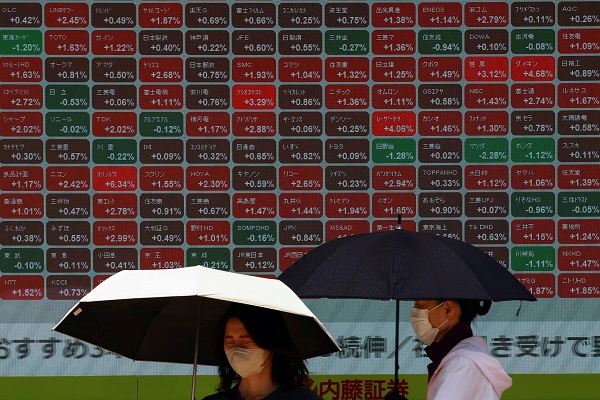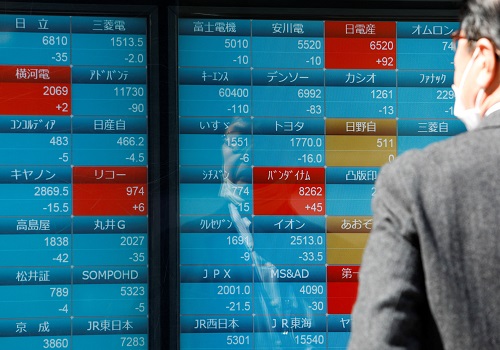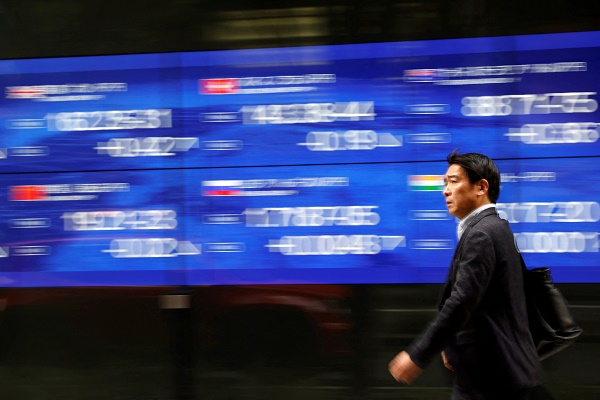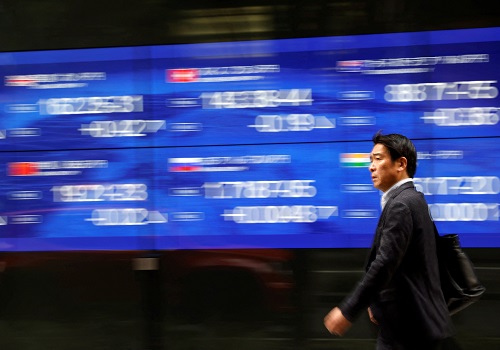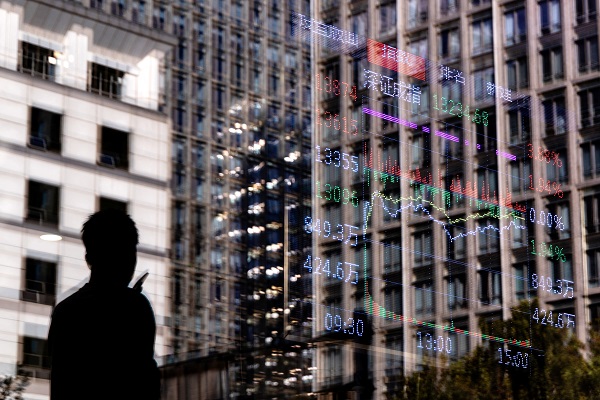Bond selloff slows in Asia, stocks fall with eyes on UK gilts, US policy
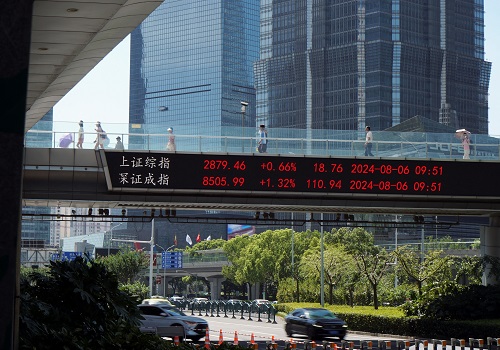
The global bond rout that has pressured equities and boosted the safe-haven U.S. dollar showed signs of slowing on Thursday, even as Japanese yields edged to new multi-year highs.
Selling in stocks continued though, with most Asian share indexes ticking down in early trading. The dollar was stable, while oil prices edged lower.
The benchmark 10-year U.S. Treasury yield eased to 4.6749% in the latest session, pulling back from the overnight high of 4.73%, a peak since April 2024.
Equivalent-maturity Japanese government bond yields started the day by rising 1 basis point to the highest since May 2011 at 1.185%, but were flat as of 0202 GMT.
Similar-dated Australian sovereign yields matched Wednesday's high since late November of 4.546% in early trading, but were last at 4.521%, up just 1 bp from the previous day's close.
Whether global bond markets can remain calm may hinge on what happens with UK bonds later in the day, which have been at the centre of the selloff as analysts talked of a welling crisis of confidence in Britain's economic and fiscal health, despite no obvious trigger for this week's 20-bps surge in 10-year gilt yields.
"Some have talked up the possibility of a re-run of the Truss/Kwarteng mini budget episode that resulted in such dramatic scenes in UK gilts in September 2022," said Chris Weston, head of research at Pepperstone.
"Clearly there is reason to watch the UK bond market intently, and the recent trend is certainly concerning," he said. "However, we can take some assurances that the BoE (Bank of England) is more prepared this time around."
Sterling was steady at $1.23625 following its 0.9% slump on Wednesday.
The U.S. dollar index, which gauges the currency against sterling, the euro and four other major peers, was little changed at 109, sitting not too far from the highest level since November 2022 of 109.54, reached a week ago.
The greenback and U.S. Treasury yields have had added momentum from recent signs of resilience in the economy and stickiness in inflation, which have seen market bets lowered for the amount of Federal Reserve easing this year.
Minutes of the Fed's December policy meeting, released on Wednesday, showed officials' concern that President-elect Donald Trump's proposed tariffs and immigration policies may prolong the fight against rising prices.
Selling in Treasuries on Wednesday accelerated after a CNN report that Trump is considering declaring a national economic emergency to provide legal justification for a series of universal levies on allies and adversaries.
Markets are only fully pricing in one 25-bps rate cut in 2025, and see around a 60% chance of a second.
All that has combined to make global stock market sentiment fragile, and Asian equities were mostly in the red early on Thursday.
Japan's Nikkei fell 0.7% and Australia's stock benchmark slipped 0.6%, while Taiwanese shares lost 0.2%.
Hong Kong's Hang Sang was little changed, while mainland Chinese blue chips edged 0.2% lower.
U.S. S&P 500 futures pointed 0.2% lower, after the cash index eked out a 0.2% gain overnight.
Stock markets will be closed on Thursday in the United States and Treasuries have a shortened session due to the national day of mourning for former President Jimmy Carter.
On Friday, the closely watch monthly payrolls report will provide potentially crucial clues on the outlook for Fed policy.
Oil prices declined for a second session, pressured by a stronger dollar and large builds in U.S. fuel inventories last week.
Brent crude eased 39 cents to $75.77 a barrel. U.S. West Texas Intermediate crude fell 39 cents to $72.93.
Gold prices edged down 0.1% to around $2,658 an ounce, pulling back from the overnight high of $2,670.10, a peak since Dec. 13.
Leading cryptocurrency bitcoin was steady at around $94,965, following a two-day 7% slide.

















